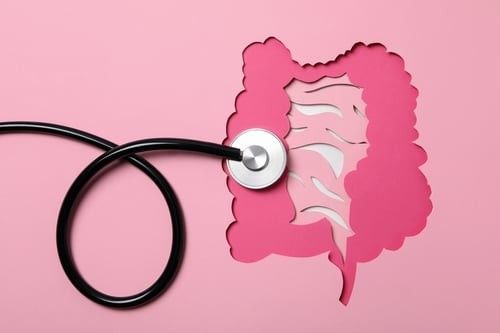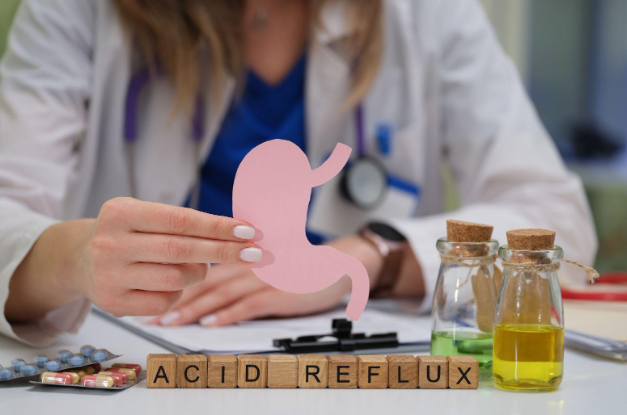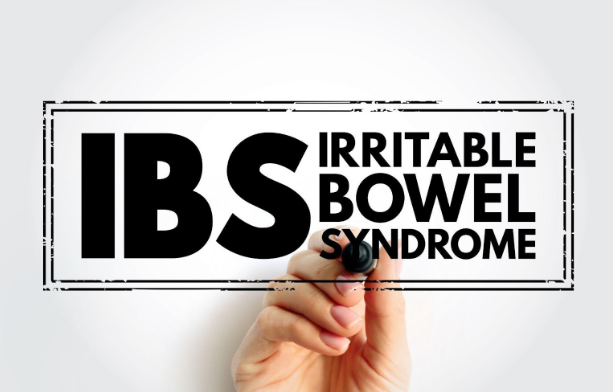What Are the Factors That Contribute to Ulcerative Colitis?

Around 3 million adults in the United States suffer from inflammatory bowel disease (IBD), causing them to live with pain and discomfort. In the case of ulcerative colitis, the pain can range in severity depending on the complexity of the disease—but since it has no cure, people can experience symptoms throughout their life.
Ulcerative colitis can be debilitating if left unchecked, but it can be managed with the right treatment and lifestyle choices. If you suffer from ulcerative colitis, it’s important that you know about the potential causes and triggers so you can better handle the disease. Here’s what you need to know about ulcerative colitis and the factors that can lead to it.
What Is Ulcerative Colitis?
Ulcerative colitis is an inflammatory bowel disease that affects the digestive tract and causes irritation, cramps, ulcers, and more. It usually occurs in the innermost lining of the large intestine (colon), and the rectum. Chronic inflammation causes the lining tissue to break down, leading to the formation of ulcers.
Symptoms of ulcerative colitis usually develop over time and may be constant or intermittent. While ulcerative colitis can be managed with medication, in some difficult cases it can lead to further complications that may require surgery.
Ulcerative colitis can fluctuate from mild to severe over the course of several years, but the course of development varies depending on several factors. Occasionally, the disease can even “burn out” and become inactive.
Types of Ulcerative Colitis
Ulcerative colitis can be classified based on its location in your body. They include:
- Ulcerative proctitis is characterized by inflammation solely in the rectum.
- Proctosigmoiditis has inflammation both in the rectum and sigmoid colon (the lower end of the colon that leads to the rectum).
- Left-sided colitis showcases inflammation that extends from the rectum up the sigmoid colon and to the descending colon.
- Pancolitis is a type of ulcerative colitis that affects the full colon and therefore causes more serious symptoms.
- Acute severe ulcerative colitis affects the entire colon and is one of the more rare types of ulcerative colitis. Unfortunately, it is also often one of the most painful.
Symptoms of Ulcerative Colitis
The symptoms of ulcerative colitis vary in severity based on the individual, but a few symptoms are clear warning signs of the disease.
- Diarrhea. Ongoing diarrhea that is usually bloody and shows no reaction to over-the-counter medications is one of the most common symptoms of ulcerative colitis. These urgent bowel movements can even disturb a person from their sleep.
- Abdominal or rectal pain. You may feel pain and cramping in the belly and rectal areas due to inflammation and the formation of ulcers.
- Weight loss. If left untreated, chronic inflammation, diarrhea, and other symptoms can lead to a loss of appetite, weight loss, and poor nutrition. In children, the detrimental effect on nutrition can lead to poor growth as well.
Apart from these main symptoms, other signs of the disease are:
- Fatigue
- Nausea
- Anemia
- Fever
- Joint pain
- Skin rashes
- Red or painful eyes
Potential Complications
If ulcerative colitis is left untreated, it can lead to the development of further, more severe complications even in parts of the body unassociated with the colon. However, all these potential complications are a result of inflammation and issues with the immune system.
Chronic inflammation can lead to the development of arthritis in large joints and the spine. It can also cause serious ulcerations in the skin, liver disease (sclerosing cholangitis), and an increased risk of colon cancer.
Causes of Ulcerative Colitis
There is currently no known concrete cause behind ulcerative colitis, but it is thought to be an autoimmune condition. The immune system protects the body from infection, but sometimes it can mistakenly attack healthy tissue, which usually leads to inflammation of body tissue. In the case of ulcerative colitis, it is theorized that the immune system mistakenly attacks the good bacteria in the colon (to aid with digestion), which leads to the rectum and colon becoming inflamed.
Some researchers also believe that it can be triggered by an actual viral or bacterial infection which the immune system fights off and then continues fighting even after it is gone. There is also a possibility of no infections at all, and that the immune system might just malfunction for no reason. Ultimately, scientists believe that ulcerative colitis can stem from several causes, or a combination of causes depending on the individual.
Risk Factors of Ulcerative Colitis
Although the exact cause behind ulcerative colitis is unknown, there are several factors that are believed to contribute to developing or triggering ulcerative colitis. The most common risk factors are:
Genetics
Inherited genes can be a factor when it comes to the development of ulcerative colitis. If an individual has a family history of ulcerative colitis, such as a parent or sibling, they likely have a higher risk of developing it.
However, it is not as simple as just being passed down through generations. Studies show that over 100 genes can play a role in ulcerative colitis, and only ten to twenty percent of people with ulcerative colitis have a close relative who suffers from IBD. While this implies that genetics alone might not be the cause of developing ulcerative colitis, it becomes a risk factor, especially when other factors are at play.
Environmental Factors
Bacteria, chemicals, or other substances in the environment might trigger inflammation and immune responses. One likely factor is medication. Nonsteroidal anti-inflammatory drugs (NSAIDs) and antibiotics are not used often for people with ulcerative colitis because they have been associated with flare-ups. Research also shows that when antibiotics are taken for a period of over 30 days, it increases the chances of developing ulcerative colitis or Crohn’s disease.
Age
Ulcerative colitis can start developing in people of any age, but it is most common between the ages of 15 and 30. It also occurs less in older adults above the age of 50, but it is still possible.
Gender
Men and women have equal chances of developing ulcerative colitis, but men over the age of 50 have a higher chance of being diagnosed than women.
Race or Ethnicity
Currently, caucasian people appear to have the highest risk of developing ulcerative colitis, but race is not a singularly defining factor. People of any race can develop any form of inflammatory bowel disease depending on the other factors in their life.
Treatment Options
Ulcerative colitis has no cure, but engaging with regular treatment options can make it much more manageable. Treatment for ulcerative colitis usually includes medication and surgery.
Medication
- Anti-inflammatory drugs
Anti-inflammatory drugs are usually the first step in the treatment of ulcerative colitis. The two main medicines used are 5-aminosalicylic acid (5-ASA) and corticosteroids. Corticosteroids are usually recommended when 5-ASA drugs don’t work or if your ulcerative colitis is more severe. They can have side effects however and can lead to complications when used long-term so doctors may prescribe them for short periods of time with other medication.
- Immunosuppressants
Immunosuppressants reduce inflammation by suppressing the immune system response. These drugs are sometimes used when anti-inflammatory drugs don’t have enough of an effect, but they have the potential to cause serious side effects when used too much.
- Biologics
Biologics are a type of drug that slows or stops inflammation. Unlike conventional drugs that aim to reduce symptoms after they begin, biologics work to prevent the symptom in the first place. They target proteins that cause inflammation made by the immune system and work well for people who either don’t respond to or can’t handle other treatments.
- Other medications
Additional medication such as painkillers, anti-diarrheal medication, antispasmodics, and iron supplements can help to manage the individual symptoms of ulcerative colitis.
Surgery
Surgery can help eliminate ulcerative colitis by removing your colon and rectum (proctocolectomy). It is usually done in a procedure called ileoanal anastomosis or J-pouch surgery, where the surgeon constructs a pouch from the end of your small intestine, allowing you to eliminate waste relatively normally. This allows surgeons to avoid creating a permanent opening in your abdomen to pass bowel movements.
Diet Planning for Ulcerative Colitis
One of the most common myths behind the cause of ulcerative colitis is diet, but this was disproved. However, although the food you eat doesn’t cause the disease, diet changes can make flare-ups and symptoms more manageable.
There is no single diet plan that can help combat ulcerative colitis since it depends on your particular food triggers, as well as the way your disease develops over time. However, general changes such as keeping track of the food you eat and how it makes you feel, getting enough protein intake, and drinking plenty of fluids can help.
Switching to low-fat dairy, engaging in a low-residue or low-fiber diet when you experience flare-ups, and eating enough fruits, vegetables, and whole-grain can help. In addition, avoid alcohol, caffeine, carbonated drinks, foods with sulfur or sulfate, and spicy foods.
Ulcerative colitis is a difficult condition to live with, but it doesn’t always have to be. At Northlake Gastroenterology, we aim to provide the most advanced treatment for people in Southeast Louisiana. To learn more, book an appointment with us today.
More Blogs












